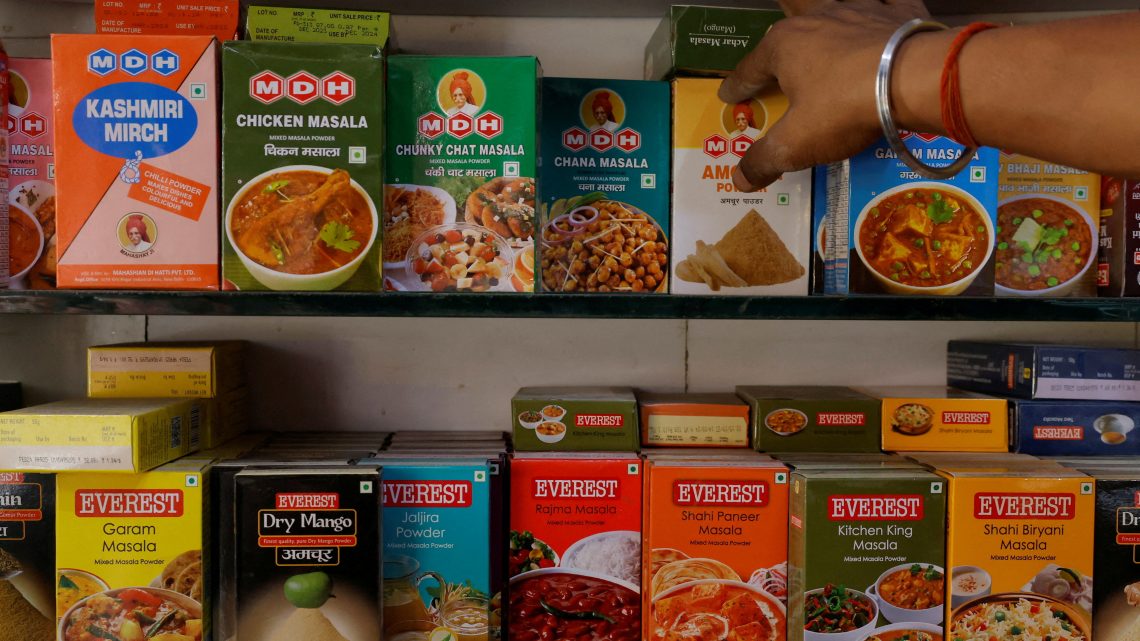
Global Crackdown on Contaminated Indian Spices Raises Food Safety Concerns
May 17, 2024Britain has recently imposed strict control measures on all spice imports from India following contamination reports involving several prominent brands. This move, driven by concerns over pesticide residues, has sparked a wave of similar actions by food regulators worldwide, raising significant food safety issues.
The UK’s Food Standards Agency (FSA) announced that it has implemented extra control measures for pesticide residues in Indian spices, including the banned substance ethylene oxide. Deputy Director of Food Policy James Cooper highlighted that “the use of ethylene oxide is not allowed here and maximum residue levels are in place for herbs and spices,” emphasizing the seriousness of the contamination issue.
This crackdown follows reports of contamination in popular Indian spice brands, Everest and MDH. Hong Kong’s food safety watchdog banned and recalled certain spices from these brands in April after detecting cancer-causing chemicals, specifically ethylene oxide. Similarly, Singapore recalled Everest’s fish curry spice mix, and investigations are ongoing in New Zealand, the US, and Australia.
The contamination concerns have led to significant international repercussions. In the United States, an analysis revealed that an average of 14.5% of MDH spice shipments since 2021 were rejected due to bacterial contamination, according to a BBC report. These findings underscore the pervasive nature of the issue and the broad scope of its impact on global food safety.
Nepal has also responded by banning the import, consumption, and sale of spices from the two Indian brands, reflecting a growing regional effort to ensure food safety and protect consumers from harmful substances.
The broader implications of this issue extend beyond immediate health risks, as they impact international trade relations and the economic stability of the affected industries. For Indian spice exporters, the fallout from these contamination reports could lead to stricter scrutiny and potential loss of market share in key export destinations.

